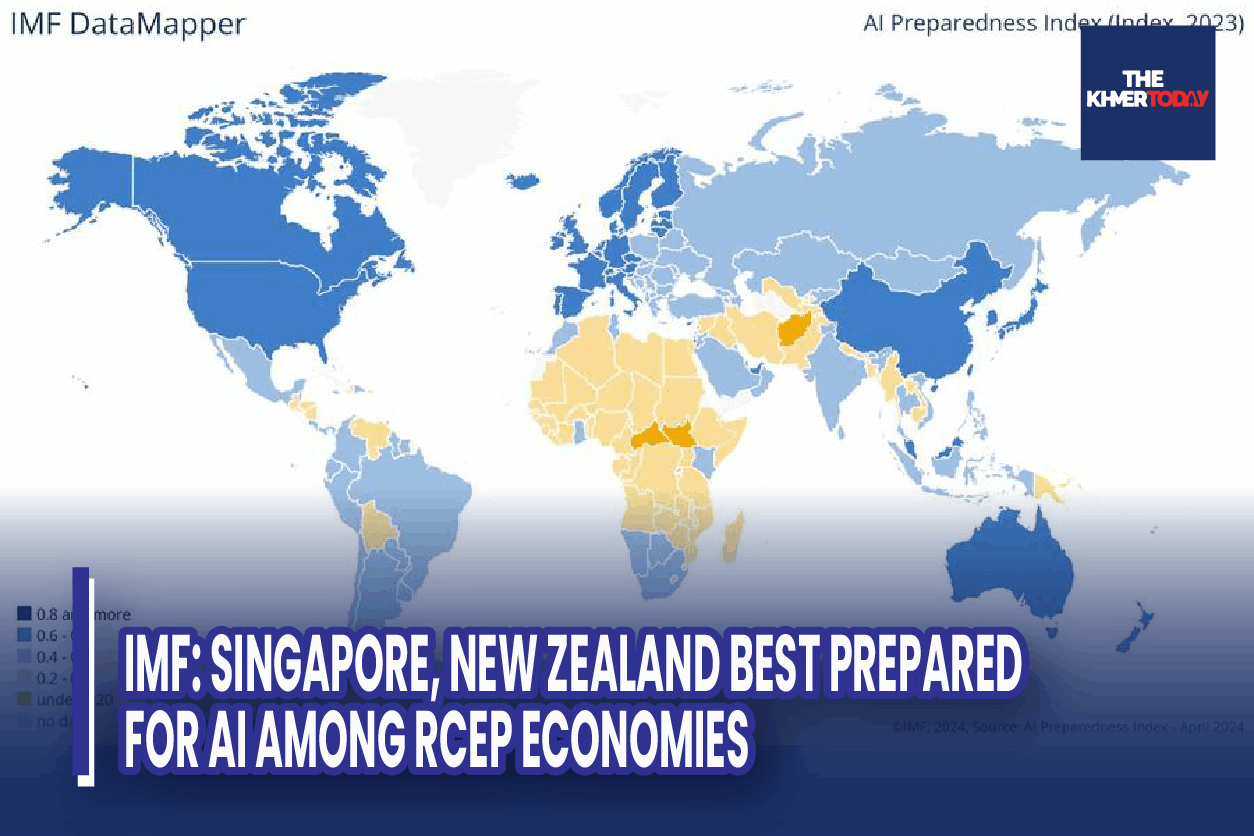IMF: Singapore, New Zealand Best Prepared For AI Among RCEP Economies

Phnom Penh, June 28, 2024 --
Singapore is best prepared for artificial intelligence (AI) among the 15 members of the Regional Comprehensive Economic Partnership (RCEP), the International Monetary Fund (IMF) says. New Zealand is second-best and Australia, Japan and South Korea are equal third.
The IMF’s new AI Preparedness Index released this week tracks 174 economies based on digital infrastructure, human capital and labour policies, innovation and integration, and regulation and ethics.
Singapore scored 0.80 points followed by New Zealand at 0.75 points and Australia, Japan and South Korea at 0.73 points.
China came next at 0.64 points followed by Malaysia at 0.63 points — almost as high as the advanced economy average of 0.68 points.
Thailand scored 0.54 points followed by Indonesia at 0.52 points, Brunei and the Philippines at 0.50 points, Vietnam at 0.48 points — all above the emerging market average of 0.46 points.
Among the remaining RCEP economies, Cambodia scored 0.37 points followed by Laos and Myanmar at 0.33 points.
AI SEEN THREATENING 24 PERCENT OF EMERGING ECONOMY JOBS
“Our research has already shown how AI is poised to reshape the global economy,” says Giovanni Melina, an economist at the IMF's research department in Washington.
“It could endanger 33 percent of jobs in advanced economies, 24 percent in emerging economies, and 18 percent in low-income countries,” he says.
"But, on the brighter side, it also brings enormous potential to enhance the productivity of existing jobs for which AI can be a complementary tool and to create new jobs and even new industries.”
Melina notes that poorer countries are likely to be less affected and face fewer immediate disruptions from AI as they rely less on high-skilled jobs than rich countries.
NEED FOR POORER NATIONS TO BOOST DIGITAL INVESTMENT
At the same time, however, AI could worsen inequality for poorer nations as many lack the infrastructure or skilled workforces needed to harness its benefits.
“Under most scenarios, AI will likely worsen overall inequality, a troubling trend that policymakers can work to prevent,” Melina says.
“The policy priority for emerging market and developing economies should be to lay a strong foundation by investing in digital infrastructure and digital training for workers.”